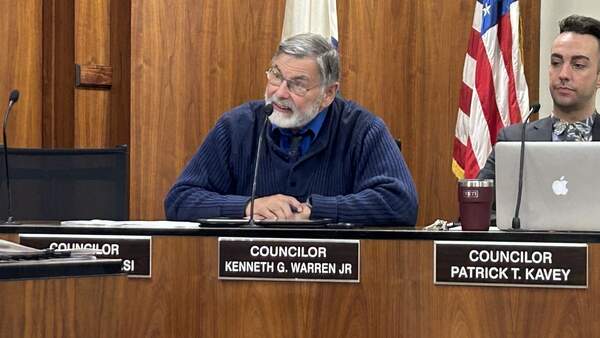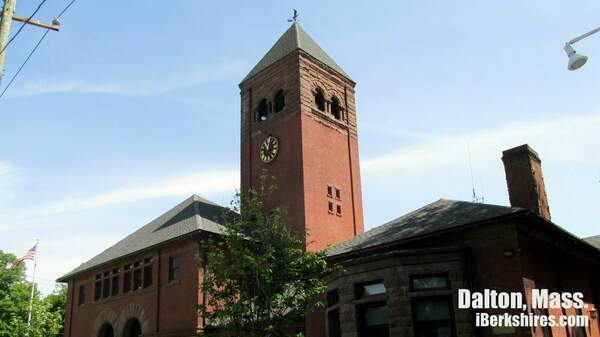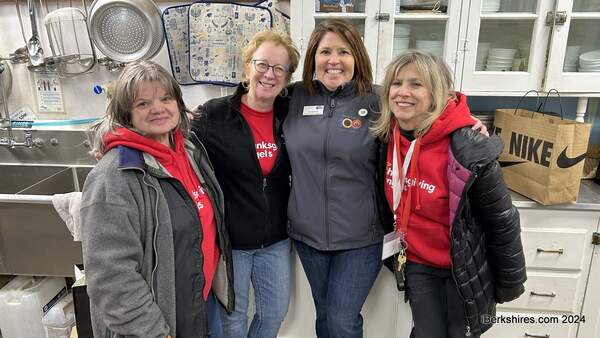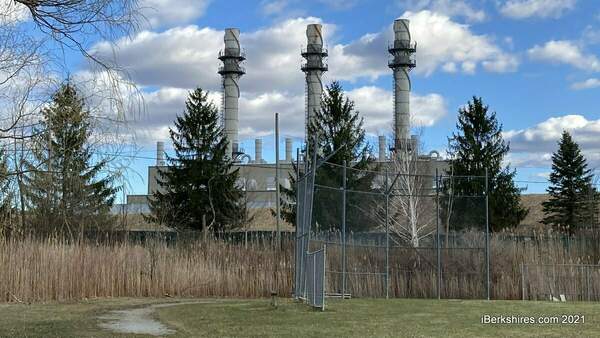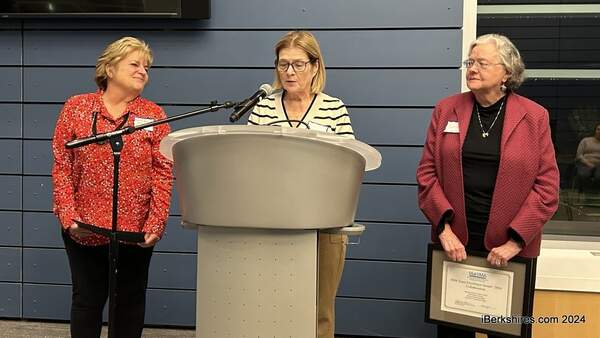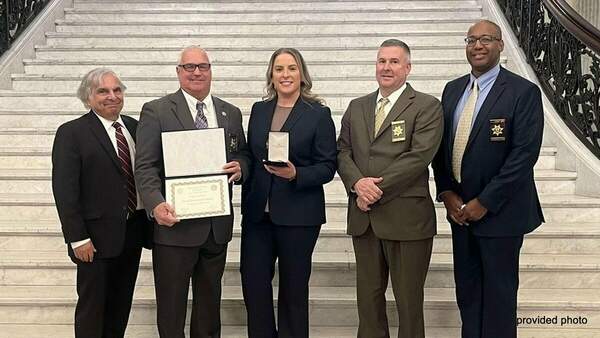Students Show Off Projects at Region 1 Science Fair
|

Taconic senior Aliza Ahlen qualified for the Massachusetts Biogenius Challenge with her project. For more photos, see the slideshow.
|
NORTH ADAMS, Mass. — Projects ranged from honey-based antibiotics to snowboard physics all the way down to sink holes at the 9th annual Region 1 Science Fair at Massachusetts College Liberal Arts on Thursday afternoon.
The fair, which saw about 80 students and around 60 projects, pitted students from nine schools — four from Berkshire County — for two available first-place awards and a trip to Phoenix, Ariz., for the Intel International Science and Engineering Fair in May. Twelve Forty other students qualified for the Massachusetts State Science and Engineering Fair.
"This is tremendous to see the room full of you here today and we're proud of what you have done," said Monica Joslin, dean of academic affairs at MCLA, also noting that the judges were "absolutely amazed."
Westfield High School took both first-place awards. Shannon Boley, a senior, won for her project "Effects of an Administrator's Prosody on Autistic Children" while seniors Dillon Sienko's and Patrick Monette's "Effects of Organically Enriched Soil on Tagetes Tenuifolia Development."
In addition to the state and international fairs, Boley qualified for the Massachusetts Biogenius Challenge. Taconic senior Aliza Ahlen also qualified with her project, "Honey; the Antibiotic." Ahlen's project examined the effectiveness of various honey types, as well as solutions, as an antibiotic. She concluded that raw honey was the best.
Some students focused their personal hobbies and interests into their projects. Michael Perkins, a student at Berkshire Arts and Technology Charter Public School and avid snowboarder who works at Bousquet Ski Resort in Pittsfield, studied differences in snowboard friction in comparison to weight and snowboard size.
A different project, done by BArT sophomore Jeannette Lambert, explored the science behind sink holes. Lambert said she thought of the topic before the media craze about the Florida man who was swallowed by one in his home earlier this month.
"It's a real problem that's happening," Lambert said.
|

BArT sophomore Jeannette Lambert shows her sink holes project to classmates.
|
Lambert is looking forward to expanding her project next year to a larger, 5-gallon bucket scale, an upgrade from the 8-ounce cups used this year.
A lot of students were looking forward to college as well. Ahlen has been accepted to University of Massachusetts at Amherst and is awaiting results from Cornell University and Smith College. Monette is shooting for the University of Rochester (N.Y.) and Sienko wants to study astrophysics with Harvard, Columbia and Dartmouth as three of his potential schools.
"All of these lessons and skills are important to your future no matter which career path or educational goal you have," said Kristen Pearson, co-chairman of the fair's planning committee.
Christopher Hines, STEM program manager at MCLA and co-chairman of the fair's planning board, hopes to expand on the fair in the future.
"One of the things we're trying to do is have more schools and students here," said Hines.
Also, keynote speaker Pat Muraca, president and chief executive officer at Nuclea Biotechnologies of Pittsfield, was absent because of a rescheduling conflict. The fair was originally scheduled for Friday, March 8, but was canceled after the area was hit by a snowstorm.
Tags: awards, science fair, STEM,



